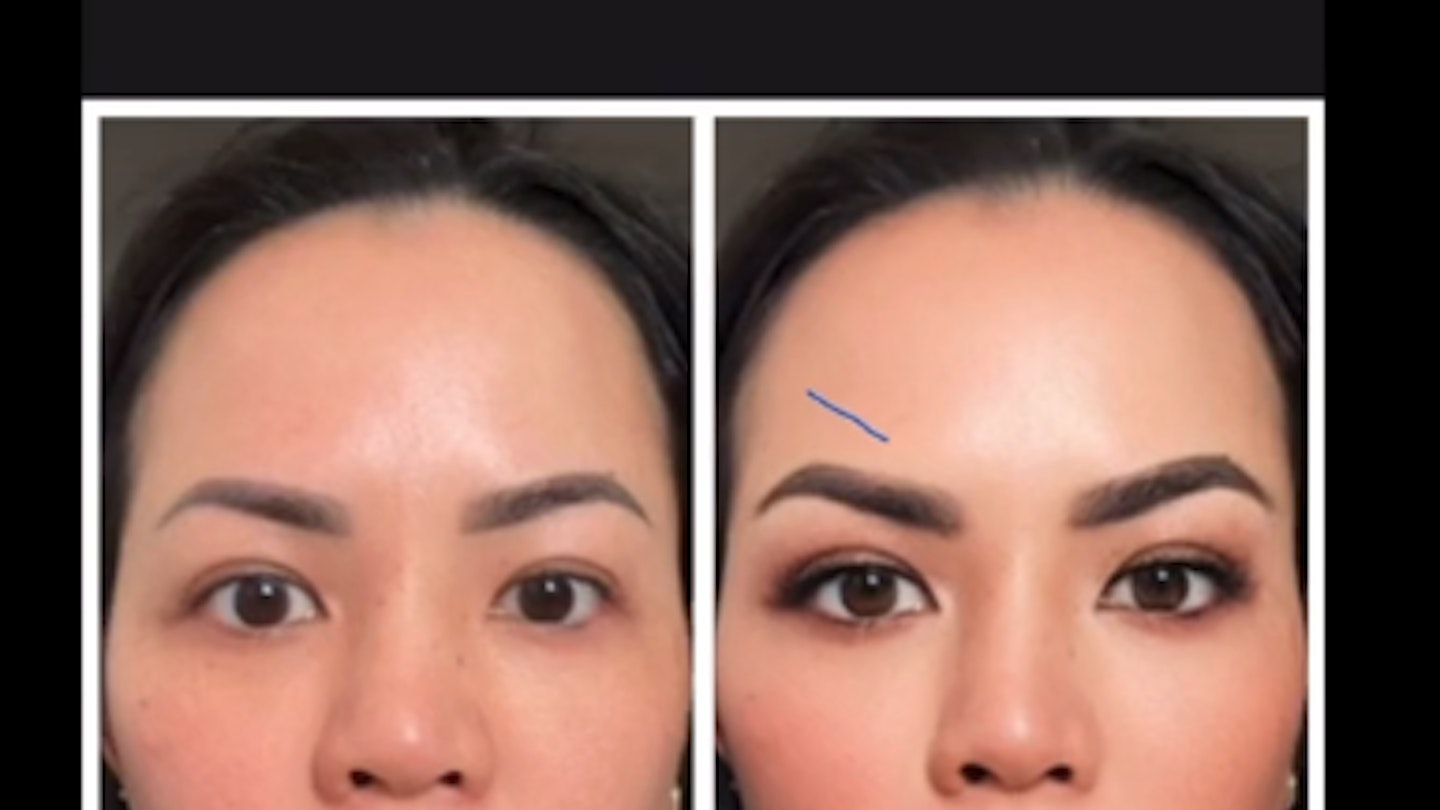Remember when we used to use social media filters to turn ourselves into cute little dogs? The dog ear and tongue filters were silly and harmless. Generally filters were a bit of fun – and many still are: I turned myself into a ‘gym bro’ the other week and looked freakishly like my little brother. But today, there’s a much more sinister side to this world.
The latest to go viral on TikTok is the Bold Glamour filter, which gives a flawless make-up look that makes you look effortlessly gorgeous. But the freaky and unsettling thing about it is how real it looks - it doesn’t look like you’ve used a filter at all, however much you wiggle your eyebrows or cover your face with your hand.
One Twitter user who pulled a range of facial expressions to test how easily it would glitch wrote: ‘I’m giving it a hard time here and it glitches just once when I’m covering my entire face.’
Another wrote: 'There’s a new filter on tiktok called “Bold Glamour” and that shit… should be illegal because you can rub your brows and eyes and it won’t budge... whoever made this. I’m scared of them.'
More and more filters are sneakily beautifying our faces using subtle sharpening or enhancing tools. The result is faces that look like us – only hotter or younger(wide eyes, pouty lips, smooth, wrinkle and laughter line-free skin). The teenage filter – which makes your face look as young and fresh as a teenager's - is another one doing the rounds.
On the one hand, such advanced AI developments are exciting, but when we can’t decipher what’s reality and what’s digitally enhanced on real-time videos it opens up a dangerous can of worms. When filters can go this far to manipulate what we see, how will we ever know what to believe?
Not only do we risk being deceived the whole time, we’ll deceive ourselves, which could wreak havoc with our self-esteem. If I present as a perfect, blemish-free, younger version of myself online, people will only be disappointed when a haggard, sleep-deprived 30-something mum turns up IRL. Really, I’m the loser here, because I’ll be the most disappointed when I tear myself away from the screen and catch my reflection in a mirror.
Already stories are emerging of women becomingso obsessed with the way filters make them look they’re seeking surgery to alter their faces permanently.
Most worryingly of all is the affect this will have on young girls who’ve grown up online. What will the consequences be if filters are changing the way they seem themselves? Those who are online more than anyone could grow accustomed to their fake faces. Not being able to accept the reality could lead to all sorts of mental health issues and be a real danger.
One facial plastic surgeon and TikTok influencer warned: 'Filters are fun, but they are NOT reality and we shouldn’t be comparing ourselves to them. But wow this one is good.'
Millennial women were subjected to an obsession with size zero in the Noughties, with showbiz news sites circling a ring of shame around any celebrity who had a bit of cellulite or wasn't totally skeletal. It arguably meant a generation grew up with unrealistic expectations about their bodies, many of whom went on to develop eating disorders.
Could seeing an unrealistic version of yourself mean the same could happen to Gen Z women with these filters? Let's not wait around to see.
We need to approach anything that promises to ‘beautify’ with caution, because we risk setting ourselves up to be self-hating narcissists who prefer to live in a fake online world than reveal the real version of ourselves.
